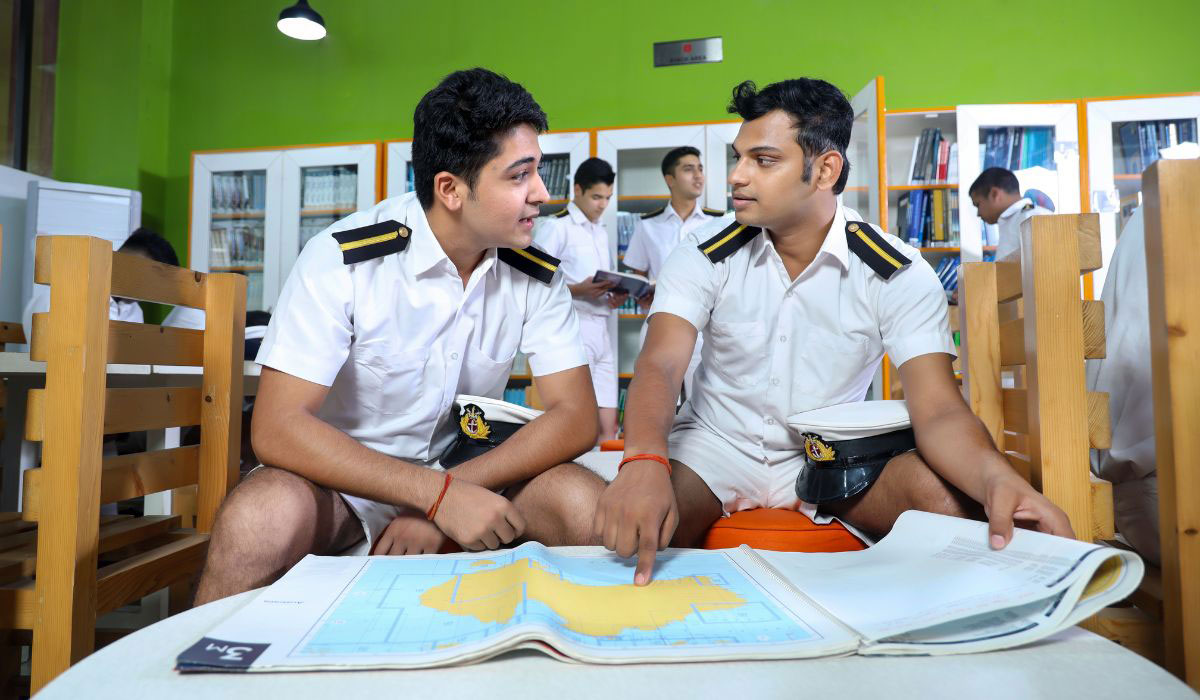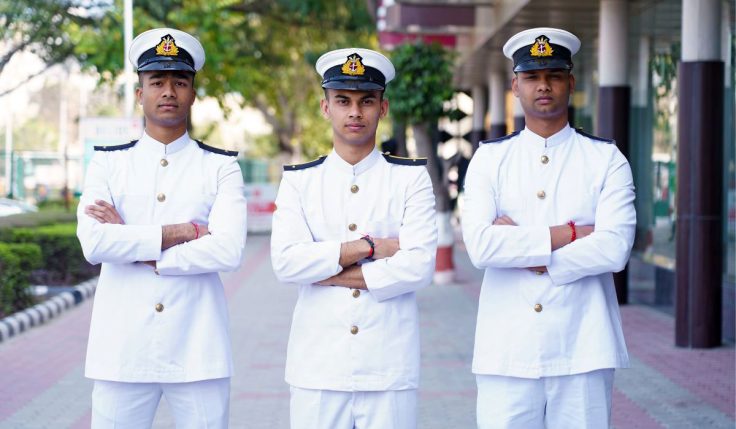With the expansion of sea routes and shipping industry the countries are now very well connected. Nautical Science now is an important part of this changing world, making it easier for global trade and economy to work. Let’s us explore the various sides of of Nautical Science, the B.Sc. Nautical Science school, and how it affects foreign trade.
Maritime Studies and the B.Sc. in Nautical Science: B.Sc. Nautical Science program is the best course for anyone wanting to enter in this domain because it gives students all the necessary skills and information they need for a good job in the maritime field. This program covers all the important aspects like navigation, ship operations, weather, marine law, and other important topics. It gives people who want to become navigators and officers in the maritime business a strong base.
Sailing the Seas of International Trade and Economy: It is impossible to overestimate the importance of nautical science in international trade and economics. Ensuring the safe and efficient transportation of products across seas is the major responsibility of navigation and ship operations. Professionals in nautical science, often known as merchant navy officers, are essential in controlling vessel operations, mapping courses, and guaranteeing adherence to international maritime norms. This complex dance on the high seas directly affects the prompt delivery of commodities, which helps the world supply chain run smoothly.
Effect on the Maritime Industry: The transportation of products and commodities between continents is made possible by the maritime industry, which is a fundamental component of international trade. Professionals in nautical science play a crucial role in upholding the integrity of this sector. Their proficiency with navigation, ship handling, and observance of maritime regulations guarantees the security of ships and their priceless cargo. The knowledge and abilities gained from Nautical Science degrees come in very handy when disasters or unanticipated difficulties arise, reducing risks and protecting the marine infrastructure.
Opportunities for Maritime Education and Careers: Studying nautical science is an adventure into a world of interesting and fulfilling career options, not merely an area of study. Through the B.Sc. Nautical Science degree, people may start their educational path and access a variety of positions, each with their own set of rewards and difficulties. This section delves into a few well-known employment options that people might consider following their graduation from a Nautical Science program.
- Deck Cadet: Navigating for Hands-on Education An interactive, real-world introduction to life at sea is provided by the position of Deck Cadet for individuals just starting their careers in maritime exploration. Deck Cadets are apprentices who work with seasoned experts to acquire vital skills in ship maintenance, navigation, and safety procedures. Aspiring mariners can use this foundational phase to apply their theoretical knowledge to practical situations.
- Navigating the Seas as a Third Officer or Second Officer As one rises through the ranks, one might become a Second Officer or Third Officer. At this point, duties broaden to include controlling the deck crew of the ship, mapping courses, and supervising navigation operations. Officers in these positions need to be very proficient in communication, have a thorough awareness of maritime legislation, and maneuver the ship in a safe and efficient manner.
- Commander in Chief: Overseeing Ship Operations Chief Officer beckons to professionals as they go up the organizational ladder. This position entails taking on more accountability for the ship’s general administration, supervising cargo operations, and guaranteeing adherence to international maritime regulations. Chief officers are essential to preserving the ship’s seaworthiness and encouraging teamwork among the crew members.
- Master (Captain): In charge of the vast ocean The highest position in the marine industry is held by those who don the hat of a Master, or Captain. As the highest authority on board, masters are in charge of ensuring the security of the ship, its occupants, and its cargo. This position requires a great deal of expertise, a thorough grasp of navigation, and the capacity to act quickly and decisively when faced with difficult decisions. Masters hold a position of leadership and power as they oversee the business parts of the journey and communicate with port officials.
Also Read: Exploring the World of Nautical Science
Integration of Marine Engineering Knowledge: Although the main focus of nautical science is on navigation and ship operations, marine engineering knowledge complements it in a way that is essential to the overall operation of vessels. The cooperation of Marine Engineering and Nautical Science guarantees the smooth integration of navigational knowledge with the technological know-how required for ship maintenance and propulsion. Using an interdisciplinary approach improves marine operations’ sustainability and efficiency.
To sum up, nautical science is a crucial component of the complex system of international trade and economics. With its focus on navigation, ship operations, and maritime legislation, the B.Sc. Nautical Science curriculum is essential in producing competent personnel for the marine sector. It is impossible to overestimate the significance of nautical science in facilitating the seamless movement of products across seas as the globe grows more linked. In this constantly changing global context, nautical science experts continue to traverse the oceans and contribute to the economy of nations with their special combination of skills and knowledge.
Setting Out on a Marine Expedition at Chitkara University: The three-year B.Sc. Nautical Science curriculum at Chitkara University is a shining example for anybody looking for an exciting career in the Merchant Navy. The program, which emphasizes a special fusion of academic knowledge and practical training, covers navigation, cargo operations, and legal aspects of the marine business. It is in line with international standards. The program’s small batch size of 40 guarantees individual attention and creates an atmosphere that is ideal for learning.
Path of Career and Real-World Experience: Graduates have a variety of career options after graduation, ranging from Deck Cadet to the esteemed Master (Captain) position. One of the program’s most notable aspects is a twelve-month internship aboard merchant naval ships, which provides real-world knowledge of shipboard operations. Chitkara University offers guaranteed placement support, opening doors for employment with leading international shipping businesses. The intense training develops professionalism, alertness, and flexibility in addition to imparting in-demand skills, molding trainees into skilled marine professionals.
Chitkara University: Your Passport to World-Class Maritime Education Aspiring marine professionals should give Chitkara University serious consideration because of its dedication to providing high-quality education and job training. The B.Sc. Nautical Science program offers a unique blend of adventure, real-world experience, and the chance to sail the high seas. It also turns students become competent shipboard officers. Those who choose Chitkara University set out on a life-changing path that leads to a vibrant and rewarding profession in the constantly changing marine sector.






